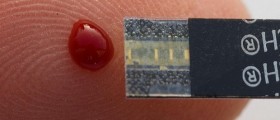
Obese women, those of advanced maternal age, or those with a family history of diabetes, are more likely than the average woman to develop this condition. Gestational diabetes is diagnosed with the help of a glucose test. Those women who are diagnosed will work with their healthcare providers to agree a treatment plan. Often, gestational diabetes is treated with a multi-pronged approach, and not everyone with this disease needs insulin. A healthy diet is often most important part of a treatment plan. Women with gestational diabetes will see a nutritionist and discuss the foods they should be eating. Typically, they include plenty of vegetables, milk products and grains. Foods high in fat and sugar should be avoided.
Regular exercises can also be part of gestational diabetes management. Again, it is important to agree a work out plan with your doctor, and discuss what the safest pregnancy exercises are. Once you have been diagnosed with gestational diabetes, you will need frequent check-ups. Your doctor will monitor you and your baby, by checking blood sugar levels on a regular basis and monitoring weight gain. Treatment will be constantly re-evaluated. Some women will need insulin injections, while others are perfectly successful in controlling their condition through a healthy and well planned out diet, and plenty of exercise. Although gestational diabetes normally goes way with the end of your pregnancy, additional check-ups are recommended to make sure.
















Your thoughts on this
Loading...